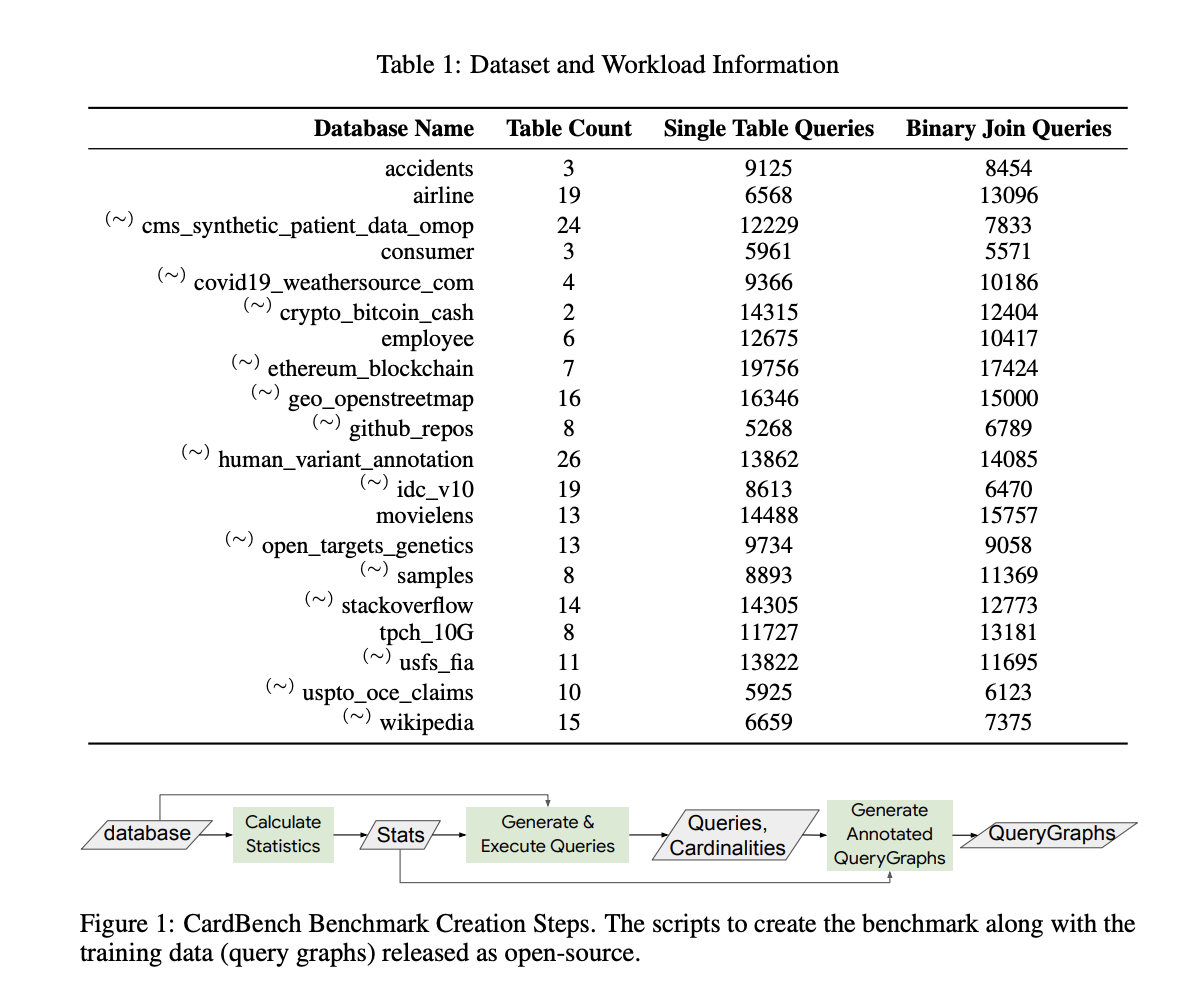
«`html
Cardinality estimation (CE) in Relational Databases
Cardinality estimation (CE) is crucial in optimizing query performance in relational databases. It influences execution plans by query optimizers, impacting query execution times and overall database performance. Inaccurate estimates can lead to poor execution plans, significantly reducing performance.
Challenges and Limitations of Current Methods
Traditional CE techniques rely on heuristics and simplified models, often needing to accurately predict cardinalities, especially in complex queries. Learned CE models offer better accuracy but face barriers to adoption due to high training overheads and the lack of a comprehensive benchmark for evaluating their performance.
Introducing CardBench: A Comprehensive Benchmark
CardBench, developed by researchers from Google Inc., includes thousands of queries across 20 real-world databases, offering a thorough evaluation of learned CE models. It supports instance-based models, zero-shot models, and fine-tuned models, lowering the barrier for researchers interested in developing and testing new CE models.
Performance Evaluations and Practical Applications
Performance evaluations using CardBench show promising results, particularly for fine-tuned models. Fine-tuned models achieve accuracy comparable to instance-based methods with far less training data, making them viable for practical applications where training data may be limited.
Conclusion
CardBench represents a significant advancement in learned cardinality estimation, fostering further innovation in this critical area. Its ability to support fine-tuned models offers a practical solution for real-world applications where the cost of training new models can be prohibitive.
«`


















